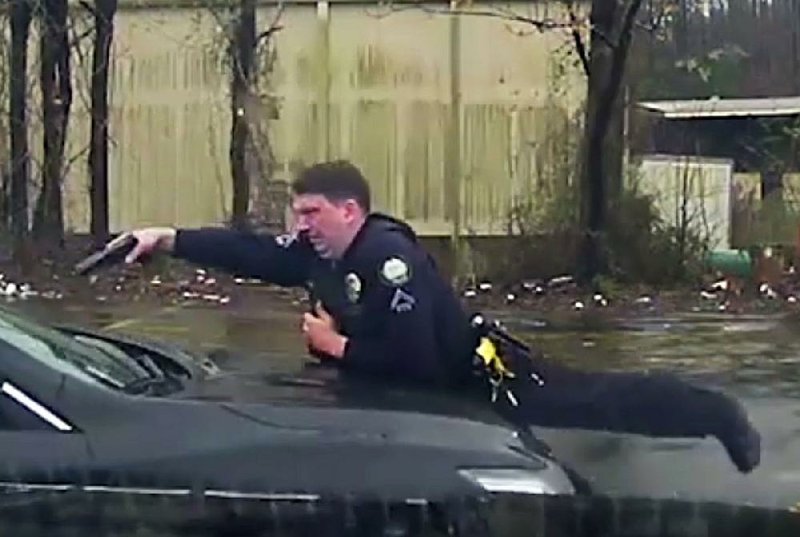Little Rock paid nearly $5,000 for a "critical-incident video" of the Feb. 22 police shooting to a marketing firm with ties to Mayor Frank Scott Jr.'s campaign spokesman.
Thirteen days after now-former officer Charles Starks fatally shot Bradley Blackshire, 30, during a traffic stop, the Police Department released audio and video footage of the incident.
The nearly 25-minute video includes narration from interim Chief Wayne Bewley, radio dispatch audio, traffic camera footage, three surveillance camera videos and two dashboard camera videos compiled into one file.
Scott said The Design Group had put the video together. The firm was paid $4,990 for the work, the mayor said Tuesday. Stephanie Jackson, Scott's part-time communications director and a spokesman for his campaign is the director of media and public relations for the firm, which she said is a family-owned business.
The city requires purchases of more than $5,000 to go out for competitive bids, according to rules on the city's purchasing division website. That requirement may be waived when "such waiver is determined to be in the best interest" of the city, the site states.
Scott said he did not see a conflict of interest in making a payment to a company connected to a city employee who worked on his campaign. The Design Group was able to do the work quickly, he said, and he felt that was essential in light of tension within the community after the shooting.
"I did not see a conflict of interest, particularly in the weighing of community unrest and transparency. We could not afford to wait on releasing that video a 14th or 15th day," Scott said.
Putting the job out for bids would have taken longer, he said. He added that the cost of the video's production may have been higher because it was a "rush job."
The city has three Little Rock Television employees, who produce videos of board meetings and news conferences for Government Access Channel 11 and the city's YouTube channel.
Scott said the video was the first of its kind released in the state. He said releasing that type of video, rather than just the raw footage first, would ensure that "everyone had a thorough understanding of how the critical incident transpired from start to finish."
The February shooting prompted calls for dashboard-camera video to be released to the public. A Freedom of Information Act request for the footage from the Arkansas Democrat-Gazette was denied by the department on March 5.
An email from the Police Department's Freedom of Information Act coordinator stated that the video could not be released because it was part of an ongoing investigation. The newspaper's request was filled on March 7, the same day the critical-incident video was released and the same day the city turned its investigative file of the shooting over to Pulaski County Prosecuting Attorney Larry Jegley.
Metro on 05/23/2019
